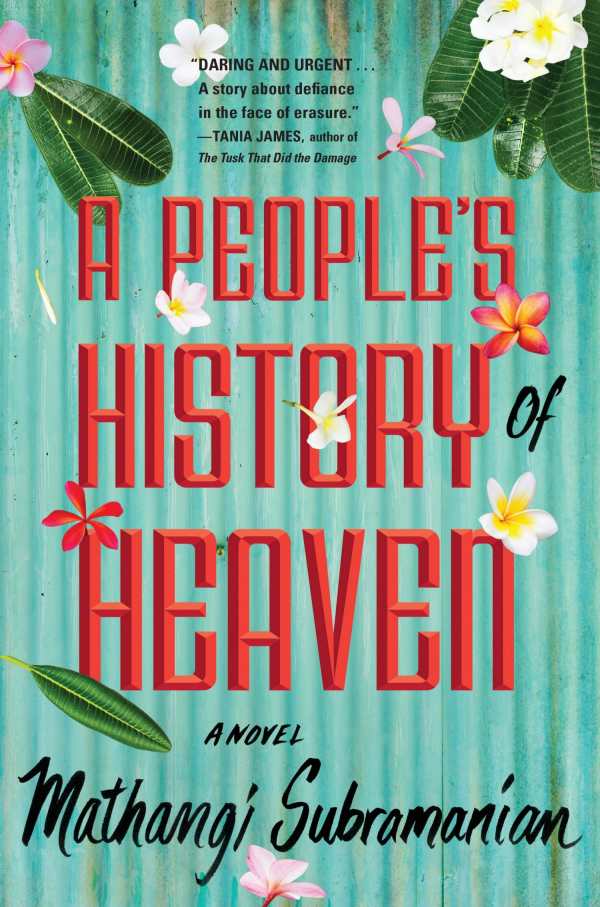
A People's History of Heaven
Full of “girls who don’t apologize for who they are,” Mathangi Subramanian’s A People’s History of Heaven proves heaven isn’t about a distant perfection. Here, Heaven is a Bangalore slum where people are bound together by their desperate vivacity, facing problems that might otherwise be swept aside.
Nominally about five girls––Banu, Deepa, Joy, Rukshana, and Padma––the novel is also the story of their community. Heaven is a crossroads where assumed axes of difference are abolished by poverty. Muslim, Hindu, Christian, high or low caste, queer or straight, educated or illiterate, cis- or transgender, the people of Heaven belong to more than these categories; they belong to each other. But their community is scheduled for demolition.
The novel centers on lives defined by femaleness and the ways individuals can find or break themselves against the locks that designation provides. Early on, these “girls learn that life owes us nothing, that womanhood is a spectrum of nuisances, heartbreak, and tragedies.” Nonetheless, they fight for futures and everyday adventures. Spending time with this fearsome five is also just plain fun.
Slum life is never romanticized. The narrator, an unnamed member of the girls’ inner circle, delivers enough cynical wisdom and pithy commentary to show just how wise these girls are to their plight without dismissing how insidious cultural messages are. What crystalizes is the sure knowledge that none of them are powerless. Rather, their resources are constantly funneled into the task of surviving an apathetic system, which increases the likelihood they won’t escape the system’s constraints.
A People’s History of Heaven forefronts human dignity and the intelligence it takes to survive at the intersection of so much society uses to set people apart, while also making it clear that, “in Heaven, anger is not about any one person. It’s about the whole world.”
Reviewed by
Letitia Montgomery-Rodgers
Disclosure: This article is not an endorsement, but a review. The publisher of this book provided free copies of the book to have their book reviewed by a professional reviewer. No fee was paid by the publisher for this review. Foreword Reviews only recommends books that we love. Foreword Magazine, Inc. is disclosing this in accordance with the Federal Trade Commission’s 16 CFR, Part 255.
